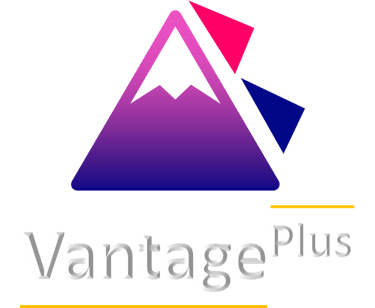
Innovative Lead Generation Techniques for 2024
Revolutionize your business growth with cutting-edge lead generation strategies. Stay ahead in 2024 by exploring the latest techniques, trends, and technologies. Elevate your approach to attract and convert leads, ensuring your business stands out in today's competitive landscape. Uncover actionable insights for enhanced SEO and propel your brand to new heights.
LEAD GENERATION
Zaid Nadeem
2/23/202415 min read
Understanding Lead Generation in the Digital Age
The digital age has profoundly influenced every business sphere, including marketing and sales. With the vast majority of consumers now online, the traditional methods of lead generation are rapidly becoming outdated and ineffectual. Enter the era of digital lead generation. This innovative approach involves capturing interest in a product or service for the purpose of developing a sales pipeline, but with a focus on digital channels like social media, email, and search engines.
Innovative lead generation techniques are the core of successful digital marketing strategies. These techniques include targeted content marketing, email marketing campaigns, social media engagements, and even machine-learning technology to automate and optimize these processes. The digital age demands a higher level of sophistication and personalization in lead generation to cut through the noise and reach potential customers. To stand out in this highly competitive landscape, businesses must pivot and adapt to the ever-evolving standards and trends of digital lead generation.
What Is Lead Generation?
Lead generation, in the simplest terms, is the initiation of consumer interest or inquiry into products or services of a business. The digital age has revamped the way lead generation operates, facilitating businesses to reach out to a broader consumer base more efficiently. In essence, it's about sparking interest in what your business has to offer, capturing that interest, and channeling it into a sales pipeline. It paves the way for nurturing potential customers until they are ready to make a purchase.
Looking ahead towards Lead Generation Strategies 2024, the multifaceted approach includes an array of methodologies ranging from content marketing, SEO, email marketing, and social media strategies, to webinars and product demos. The evolution and integration of technology have made these strategies even more effective. Businesses that leverage sophisticated technologies along with data-driven insights to generate high-quality leads are a step ahead in the increasingly competitive marketplace. This strategy primarily focuses on reaching the right audience, at the right time, via the right platform. In essence, it's all about connecting with your target audience in a way that’s both efficient and user-focused.


Why Lead Generation Is Key to Your Business Success?
In today's cutthroat business landscape, the success of a venture is irrefutably linked to its capability to constantly generate new leads, and this is where Digital Marketing Lead Generation makes an enormous difference. Businesses are gradually shifting from the olden days' methods of waiting for the customers to walk in through the door. Instead, they are proactively reaching out to potential customers with targeted marketing efforts, pulling them towards the business offerings. Digital Marketing Lead Generation, being a strategic and data-driven approach, enables businesses to attract, engage, and convert potential leads into loyal customers, ensuring a steady influx of revenue, growth and stability.
Moreover, Digital Marketing Lead Generation not only ensures the inflow of new customers but also allows businesses to nurture existing potential customers. It propels the businesses to continually engage with their audience by providing valuable content, personalized offers, and timely interaction, deepening the relationship with the customers. As a result, businesses enjoy a higher conversion rate, increased customer loyalty, and eventually a fortified market reputation. When a business continues to generate and nurture leads, it enables not just survival but thriving success in the competitive digital marketplace.
Top Lead Generation Trends for 2024
Embracing the newest trends in lead generation tools and technologies has become a crucial part of staying competitive in today's tech-dependent business environment. A rapid evolution has been noticed in the world of lead generation, powered by advancements in artificial intelligence, big data analysis, machine learning, and so on. These advanced technologies have opened a whole new dimension of opportunities for businesses to connect with their potential customers more effectively, expand their reach, and tap into newer markets.
On the other hand, comprehensive and data-driven tools for lead generation have transformed the traditional marketing strategies into more targeted and personalized methods. These tools enable businesses to collect, analyze, and leverage customer data to craft highly tailored messages that cater to the specific needs and preferences of individual customers. By adopting these current trends, businesses can enhance their lead generation efforts and drastically boost their ROI. For example, globally acknowledged companies like IBM and Amazon have significantly amplified their lead generation efforts by incorporating the use of advance AI technology in their business strategies.
Here are some of the top lead generation trends for 2024:
Artificial Intelligence: AI is no longer a future concept; it's here and evolving rapidly. It has proven to be an effective tool in generating quality leads by helping businesses understand their customers better, predict customer behavior, automate repetitive tasks, and personalize communication.
Big Data Analysis: The use of big data analysis allows businesses to analyze vast amounts of information quickly and accurately. This can help identify patterns, trends, and insights that can be used to enhance marketing strategies and increase lead generation.
Machine Learning: This technology enables computers to learn from previous experiences or historical data. In terms of lead generation, machine learning algorithms can predict potential leads based on past interactions with similar profiles.
Personalization Tools: These tools allow businesses to deliver personalized messages based on individual customer preferences. This not only enhances the user experience but also increases conversion rates as customers tend to respond more positively when they feel valued.
Social Media Advertising: With billions of users worldwide, social media platforms offer a massive opportunity for businesses looking for potential leads. Platforms like LinkedIn have specific features designed for business advertising which helps in reaching out effectively to prospective clients.
Video Marketing: Videos are engaging visual content that grabs attention instantly. They provide an excellent platform for explaining complex products or services simply while keeping viewers engaged hence increasing chances of converting them into potential leads.
By adopting these current trends in your business strategy you'll not only stay ahead in this competitive market but also significantly improve your ROI just like IBM and Amazon.
Leveraging AI and Machine Learning
The advent of AI and machine learning introduces a paradigm shift in effective email marketing techniques. Their application extends beyond predictive typing and now plays a vital role in driving optimized lead generation campaigns. Consider AI's propensity to analyze vast pools of customer data faster and more accurately than a human. It can identify trends and patterns that assist in segmenting audiences and delivering highly targeted promotional emails. Hence, AI-driven personalization in email marketing is no longer just a competitive advantage but is fast becoming a business necessity.
Machine learning, a subset of AI, offers immense potential in enriching effective email marketing techniques. Primarily, it can learn from past customer interactions with your emails, like open rates, click-through rates, and conversions to forecast future behavior. It enables marketers to pinpoint the right time to send emails, the most engaging subject lines, and the kind of content that resonates with each individual. Thus, with AI and machine learning at their helm, businesses can navigate the ever-evolving landscape of lead generation more competently and effectively.
The Rise of Personalized Marketing Campaigns
The emergence of personalized marketing campaigns has completely revolutionized the digital landscape, changing the way businesses reach out to potential leads. The core ideology behind this trend is to treat each individual as a unique entity rather than targeting a broad general audience. This strategy places priority on individual preferences, past purchases, browsing behavior, and numerous other factors to provide marketing content that matches the consumers' tastes and needs. Consequently, personalized marketing campaigns have proven to provide higher response rates, improved customer satisfaction, and enhanced brand loyalty.
Take the marketing giant, Amazon, for instance. The company successfully leverages personalized marketing, recommending products based on users' past searches and purchases, ultimately propelling its sales. In this rise of personalized marketing, businesses are utilizing advanced tools like AI and machine learning, data analytics, and CRM software to better understand their customers and formulate highly tailored marketing initiatives. It's no wonder that a recent study by Epsilon noted that 80% of consumers are more likely to do business with a company that offers personalized experiences. This highlights the immense potential of personalized marketing campaigns in lead generation.


Proven Lead Generation Techniques
In the vast landscape of digital marketing, a few techniques for lead generation have consistently stood out for their efficacy and reliability. Content marketing serves as a prime example of this, with marketers capitalizing on value-driven, engaging content to attract potential leads. The idea is to provide audiences with informative and pertinent content, establishing a sense of trust and positioning your brand as a thought leader within its respective sector.
Another powerful technique in the lead generation arsenal is email marketing. Despite the rise of countless new platforms and technologies, email continues to be a vital tool for connecting directly with prospects. A well-crafted, personalized email campaign can lead to a significant increase in customer engagement. Offering exclusive content, special discounts, or valuable industry insights via email can foster a mutually beneficial relationship with potential leads, driving them further down the sales funnel.
Content Marketing That Converts
Content marketing has emerged as a powerful player in the realm of lead generation. It involves the creation and distribution of valuable content designed to engage potential customers, spark their interest, and ultimately drive them to take action. The success of this technique lies in its ability to provide useful information and answer pressing customer queries, thereby building trust, enhancing relationships, and creating a loyal following.
A significant component of content marketing is the development of targeted content that resonates with the audience's interests and needs. This approach can range from blog posts, eBooks, and informative articles, to webinars, podcasts, and video content. For instance, HubSpot, a leading marketing firm, achieved considerable success in lead generation through their comprehensive and engaging blog posts. Their data-driven insights and well-structured pieces have become a go-to source of information for many businesses, thereby effectively establishing them as an industry authority and generating high volumes of qualified leads.
Email Marketing Strategies for Higher Engagement
Email marketing, despite the growth of so many other communication channels, remains a potent tool to garner higher engagement, if wielded effectively. Understanding its nuances and intricacies are crucial for businesses to tap into its full potential. Notably, the introduction of analytics tools has revolutionized email marketing strategies, allowing businesses to tailor content more precisely to match consumer preferences, track user interaction, and subsequently increase click-through rates. High volume keywords can be carefully woven into the email content to attract more attention - a strategy worth adding to your lead generation master plan.
Actively personalizing email content for subscribers is another indispensable aspect of modern day email marketing strategies. Hyper-personalization eliminates generic content, whittling down the communication to meet individual needs, increasing the likelihood of traction. For example, Amazon’s personalized recommendations based on browsing history serves as an epitome of the success of personalized email marketing campaigns. Furthermore, encouraging social media sharing through the inclusion of social media buttons in the email body can extend your reach, introduce a new audience, and increase your leads. Email marketing, in its evolved and more refined form, is unquestionably a great lead generation asset.
Utilizing Social Media for Lead Generation
In the evolving digital arena, social media has become a powerhouse tool for generating leads. Platforms like Facebook, Instagram, LinkedIn, and others offer businesses limitless opportunities to engage both their existing customers and potential new leads. Through well-crafted content, tasteful advertising, and direct engagement, not only can businesses enhance their brand visibility but also cultivate relationships that nurture potential leads. Indeed, generating leads through social media is more than just pitching products - it is about establishing a brand's credibility, and earning the trust of potential customers.
One key advantage in utilizing social media for lead generation is its ability to allow businesses to target the audiences who are most likely to be interested in their products or services. For instance, LinkedIn, with its professional-oriented networking, is highly effective at generating B2B leads. Meanwhile, Instagram, with its visual-centric platform, is more suited towards the promotion of lifestyle, fashion, and other visually-appealing products. Thus, by understanding the unique features and strengths of each platform, and aligning them with their own specific business needs, companies can leverage the immense potential that social media holds for lead generation.
Innovative Tools and Technologies for Lead Generation
In today's digital business landscape, businesses are deploying a variety of innovative tools and technologies to streamline their lead generation efforts. Lead generation software, for example, can automate the process of finding and attracting potential clients, freeing up valuable time and resources. It enables marketers to quickly identify, track, and engage with potential leads. This can range from CRM systems to marketing intelligence tools, which help businesses analyze customer behaviors and devise effective marketing strategies. There's a swath of technology tools available today, each designed to tackle a unique part of the lead generation process.
Moreover, technologies like Artificial Intelligence (AI) and Machine Learning (ML) are revolutionizing lead generation. These technologies enhance predictive analysis, enabling businesses to identify and target high-potential leads with greater precision and efficiency. For instance, a company can integrate AI with their CRM systems, drastically improving the process flow of identifying, nurturing, and converting leads. Furthermore, the rise of chatbots and automated email marketing tools have paved the way for automated yet personalized interactions with potential leads. All these indicate a seismic shift in how businesses generate leads, optimize their marketing strategies, and ensure their long-term sustainability in an increasingly competitive environment.
CRM Systems: Managing Leads Efficiently
In the digital age of business, efficient lead management has become an integral part of successful marketing efforts. Utilizing Customer Relationship Management (CRM) systems effectively allows businesses to streamline their lead generation process by compiling data in one centralized, organized, and easily accessible platform. This holistic view of customer information equips businesses to not just capture leads but also nurture them and drive strategic interactions that enhance customer relationships, retain business, and propel sales growth.
Advanced CRM systems bring increases in organizational efficiency by automating redundant tasks while fostering productive customer engagements. Tasks like lead tracking, categorizing, and scoring become less time-consuming, enabling businesses to focus more on crafting and refining their lead generation strategies. Additionally, CRM platforms offer data-driven insights that help businesses understand their audience better and tailor their marketing initiatives more effectively. With tools like Salesforce or Hubspot, businesses can conduct insightful data analysis, forecast future sales trends, and assess lead sources. These collaborative platforms harness the power of digital transformation that can serve as a game-changer for businesses striving for lead generation success in an increasingly competitive landscape.
Marketing Automation Tools to Streamline Processes
The rise of digital marketing has introduced a multitude of marketing automation tools to efficiently streamline lead generation processes. These tools are designed to automate repetitive marketing tasks, such as email marketing, social media posting, and ad campaigns, which can not only save organizations valuable time, but also significantly improve the effectiveness of their lead generation strategies. They enable marketers to nurture prospects with highly personalized, useful content that assists in converting prospects into customers.
From Hubspot and Marketo to Pardot and Mailchimp, there's a wide range of marketing automation tools available, each with unique features tailored for different businesses and industries. For instance, Hubspot offers a comprehensive platform with features like CRM, email marketing, content management, and social media scheduling, making it an excellent option for businesses looking to manage all their marketing activities in one place. On the other hand, Mailchimp, primarily an email marketing tool, has evolved into an all-in-one marketing platform, offering features like ad retargeting, social media management, and even postcards, but remains a go-to choice for businesses focusing majorly on email campaigns. References and examples from real businesses can provide insights on how organizations are making the most of these tools to enhance their lead generation efforts.


Measuring and Analyzing Your Lead Generation Success
Accurate measurement and comprehensive analysis are foundational pillars to success in any lead generation strategy. This is not only about tracking the number of leads acquired but also understanding the quality of these leads, the cost of lead acquisition, and the conversion rate. Recollect that the ultimate goal isn't merely to generate a surplus of leads but to acquire quality leads that will eventually convert into loyal customers. Incorporating key performance indicators (KPIs) such as Lead to Close Ratio, Cost Per Lead (CPL), and Lead Conversion Rate into your strategy aids in evaluating the effectiveness of your lead generation efforts.
Moreover, an analytical approach to lead generation paves the way for an optimized and streamlined marketing strategy. Leveraging data analysis tools and technologies can aid in gaining insightful data on customer behavior, patterns, and trends. This information can then impact decision-making, guide strategy revisions or enhancements, and eventually boost the return on investments (ROI). For instance, by analyzing bounce rates and time spent on the website, marketers can pinpoint which content isn't resonating with potential leads and make calculated adjustments to their strategy.
Key Performance Indicators (KPIs) for Lead Generation
To optimize your lead generation efforts, it's imperative to measure your progress and assess the effectiveness of your strategies. This is where Key Performance Indicators (KPIs) for lead generation come into play. KPIs are quantifiable metrics that provide insights into the efficacy of your strategies and procedures in generating and converting leads. They allow you to track and measure the success of your campaigns, evaluate the quality of leads, and understand the channels that are providing the most lucrative opportunities.
These performance indicators range from the number of new leads and the conversion rate to the average cost per lead and the time taken for lead conversion. Each business chooses its KPIs based on its unique goals and objectives. For example, a business aiming to expand its customer base may prioritize new lead acquisition, while one seeking to increase profits may focus more on conversion rates. Throughout the process, it's best practice to keep monitoring your KPIs and adapt your strategies accordingly.
Utilizing Analytics to Refine Your Strategies
In the dynamic world of lead generation, harnessing the power of analytics emerges as a crucial driver for refining strategies and staying ahead of the curve. Our focus in this exploration is on the transformative impact of data-driven insights, shedding light on how analytics can be a game-changer in optimizing lead generation efforts while enhancing SEO.
One of the standout advantages lies in the identification of high-performing channels. Through analytics, businesses can pinpoint platforms that yield the most promising results, allowing for strategic resource allocation. This not only maximizes efficiency but also guarantees a more significant return on investment, a critical aspect in today's competitive landscape.
Furthermore, our exploration extends to the continuous improvement aspect of analytics. By adopting a cyclical approach to data analysis, businesses can identify trends, adapt to shifts in consumer behavior, and remain agile in the face of evolving market dynamics. The result is a lead generation strategy that not only remains effective but also resilient in the long run.
Incorporating these analytics-driven practices isn't just a trend; it's a necessity in the fast-paced digital landscape. As search engines increasingly prioritize data-driven content, businesses must equip themselves with insights and knowledge to meet and exceed these expectations. This not only ensures relevance but also positions your brand for sustained success in the competitive digital space, aligning your strategies with the evolving demands of 2024 and beyond.






Conclusion: Future-Proofing Your Lead Generation Strategy
In this blog journey, we've unveiled the dynamic evolution of lead generation, emphasizing the non-negotiable role of innovation for sustained success. From AI-driven email marketing to personalized campaigns, the blog highlighted strategies shaping the future of SEO-optimized lead generation.
Proven techniques like content marketing and email campaigns underscored the timeless importance of authentic connections, while the success stories of SEO giants like Amazon and IBM stressed the need to embrace the latest trends and technologies for a competitive edge in the digital marketplace.
Innovative tools, from CRM systems to marketing automation, are reshaping the SEO landscape, providing businesses with streamlined approaches. Measuring success through key performance indicators (KPIs) is vital, offering SEO-focused insights to adapt and optimize continually.
In essence, future-proofing your lead generation strategy demands an embrace of SEO-optimized innovation. Whether through cutting-edge tech or proven methods, elevate your SEO approach, connect authentically, and prepare your business for what lies ahead. Thrive in the dynamic SEO landscape with strategies that stand the test of time.
Turbocharge Your Leads with Vantage Plus Marketing
Ready to skyrocket your business with cutting-edge lead generation? Our blog unveils game-changing strategies for SEO-optimized success.
For expert assistance, contact Vantage Plus Marketing. Let's tailor a data-driven approach for your brand. Thrive in the digital arena – reach out now for a consultation. Elevate your leads, elevate your success.
Frequently Asked Questions (FAQs) about Lead Generation Techniques for 2024
Q1: How can AI-driven strategies improve my email marketing for lead generation?
A1: Discover how incorporating AI in your email campaigns, as discussed in the blog, can enhance personalization and engagement for effective lead generation.
Q2: Why is personalized marketing crucial for lead generation success in the digital age?
A2: Understand the significance of personalized marketing campaigns, highlighted in the blog, and how they contribute to higher response rates and brand loyalty.
Q3: What are the top lead generation trends for [Current Year] mentioned in the blog?
A3:Explore the latest trends discussed in the blog, including AI, big data analysis, and social media advertising, to stay ahead in the competitive market.
Q4: How does Vantage Plus Marketing offer expert assistance in implementing lead generation strategies?
A4: Learn about the specialized services provided by Vantage Plus Marketing to help businesses implement effective and SEO-optimized lead generation strategies.
Q5: What role do CRM systems play in streamlining lead generation processes?
A5: Dive into the details of how CRM systems, as highlighted in the blog, contribute to efficient lead management and strategic interactions for business growth.
Q6: Can content marketing really convert leads, as mentioned in the blog?
A6: Understand the efficacy of content marketing, showcased in the blog, and how it builds trust, positions your brand, and fosters relationships for lead conversion.
Q7: How do personalized email marketing strategies improve user engagement and lead conversion?
A7: Explore the nuances of personalized email marketing, as discussed in the blog, and how it leverages user data to increase engagement and conversions.
Q8: What are the advantages of using AI and machine learning in lead generation?
A8: Delve into the advantages highlighted in the blog, such as predictive analysis and optimized campaigns, showcasing the transformative impact of AI and machine learning.
Q9: How can businesses measure the success of their lead generation strategies using KPIs?
A9: Learn about the key performance indicators (KPIs) discussed in the blog, offering insights into measuring and optimizing the effectiveness of your lead generation efforts.
Q10: Why is it essential to future-proof your lead generation strategy, as emphasized in the blog?
A10: Uncover the reasons outlined in the blog post, stressing the importance of embracing innovation and SEO optimization for sustainable business growth in the digital landscape.
